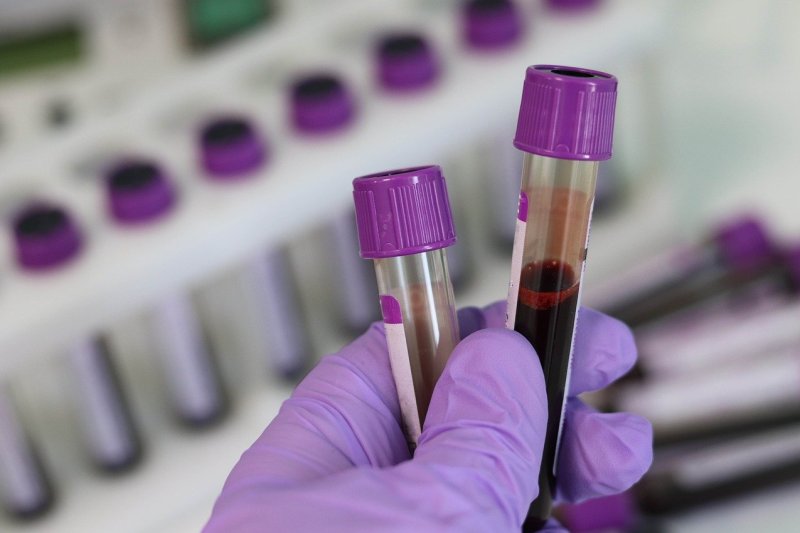Researchers say the new blood test could make the diagnosis of Alzheimer's disease easier, cheaper and, in some cases, less invasive than those currently used methods. Photo by
Belova59/Pixabay
July 28 (UPI) -- A blood test intended to measure levels of a protein in the human body is 96% accurate in identifying people with Alzheimer's disease instead of other forms of dementia, a study published Tuesday by JAMA Network Open found.
That's just as accurate as positron emission tomography, or PET, scans and spinal taps, and more precise than magnetic resonance imaging and other blood tests, the researchers said.
The new blood test could make the diagnosis of Alzheimer's disease easier, cheaper and, in some cases, less invasive than those currently used methods, they said.
The test measures levels of a protein in blood called tau, which is one of a handful of proteins linked with Alzheimer's disease. Beta-amyloid is another protein linked to the disease, the researchers said.
People with Alzheimer's disease produce higher amounts of tau and beta-amyloid, and the cells "clump" together to form plaques in the brain, according to research.
"This tau blood test may come to market as early as next year and it will be a real game-changer, advancing clinical care and research," Dr. Howard Fillit, founding executive director of the Alzheimer's Drug Discovery Foundation, said in a statement.
"This is one of the breakthroughs we've been waiting for -- a simple and accessible blood test that can diagnose Alzheimer's," he said, describing the new test as the "cholesterol" of Alzheimer's.
More than 6 million Americans live with some form of dementia, and most of them have Alzheimer's, according to the Alzheimer's Association.
Neurologists typically use MRI and PET scans to check for signs of damage to the brain associated with the disease -- such as the accumulation of beta-amyloid -- but these methods aren't always able to distinguish between Alzheimer's and other forms of dementia, research suggests.
The equipment needed to perform these tests also is expensive and not widely available in some parts of the United States, the researchers said.
Finally, checking cerebrospinal fluid for tau protein levels requires a spinal tap, which is an invasive and often painful procedure, researchers said.
For this study, the international team of researchers enrolled just over 1,400 participants at three sites in Sweden, Colombia and Arizona. Participants ranged in age from roughly 36 to 84.
Based on the findings with the blood test, people with Alzheimer's disease had seven times more the specific tau protein, called p-tau217, than people without dementia or those with other forms of the condition, the researchers said.
Although additional studies are needed, the new blood test could potentially boost the search for new treatments for Alzheimer's disease by making it easier and less expensive to screen participants for clinical trials, experts said.
"There is an urgent need for simple, inexpensive, non-invasive and easily available diagnostic tools for Alzheimer's. New testing technologies could also support drug development ... by helping identify the right people for clinical trials, and by tracking the impact of therapies being tested," Maria C. Carrillo, chief science officer at the Alzheimer's Association, said in a statement.















